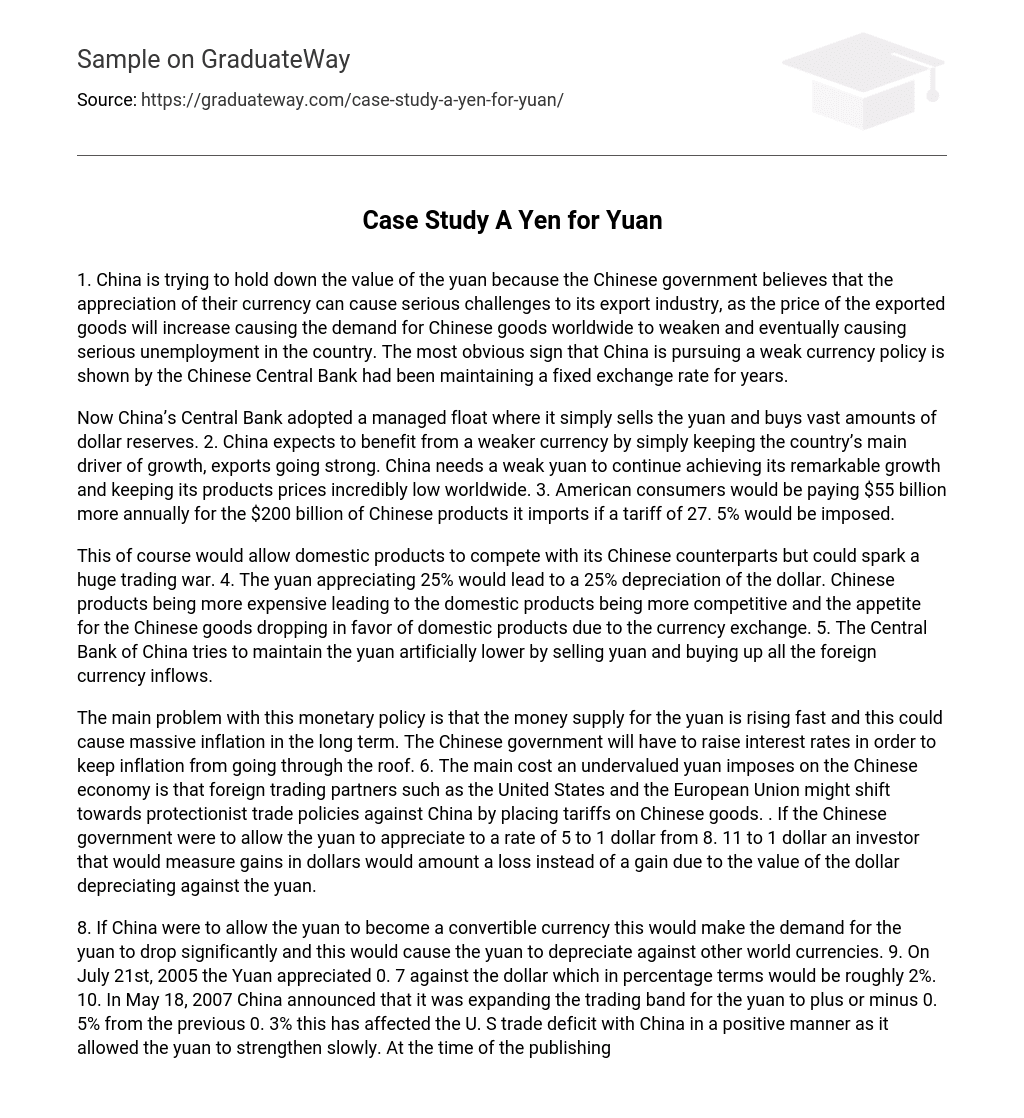China is deliberately lowering the value of its currency, the yuan, to safeguard its export industry. The Chinese government fears that an increase in their currency’s value will result in higher prices for exported goods, reducing global demand and leading to considerable unemployment domestically. This approach is evident in the consistent maintenance of a fixed exchange rate by the Chinese Central Bank.
China’s Central Bank has adopted a tactic of selling the yuan and amassing substantial amounts of dollar reserves to uphold a controlled exchange rate. This method enables China to bolster its primary economic driver, exports, by leveraging a devalued currency. China depends on a weakened yuan to sustain remarkable growth and ensure competitive prices for its products globally. If a 27.5% tariff were enforced, American consumers would ultimately shoulder an extra $55 billion annually for the $200 billion worth of imports from China.
This situation may lead to a major trade conflict since it gives domestic products the opportunity to compete with Chinese products. If the yuan appreciates by 25%, then the dollar would depreciate by an equivalent amount, causing Chinese goods to become more costly and making domestic alternatives more competitive. Consequently, consumers would prefer domestic options over Chinese goods, resulting in reduced demand for the latter. In order to artificially keep the value of the yuan low, China’s Central Bank sells yuan and obtains foreign currency inflows.
The main concern regarding this monetary policy is the rapid increase in money supply for the yuan, which has the potential to cause significant inflation in the long term. To prevent this inflationary pressure, it will be necessary for the Chinese government to raise interest rates. Additionally, an undervalued yuan poses a major drawback for the Chinese economy as it may prompt foreign trading partners like the United States and the European Union to adopt protectionist trade policies and impose tariffs on Chinese goods. If the value of the yuan appreciates to a rate of 5 to 1 dollar from its current rate of 8.11 to 1 dollar, investors who calculate gains in dollars would encounter losses due to the depreciation of the dollar against the yuan.
8. Allowing the yuan to be converted in China would lead to a decrease in its demand, resulting in a depreciation against other currencies.
9. On July 21st, 2005, there was a 0.7 appreciation of the yuan against the dollar, equating to approximately a 2% increase.
10. China’s announcement on May 18, 2007, about widening the trading band for the yuan from +/-0.3% to +/-0.5%, had a positive impact on the U.S trade deficit with China as it enabled a gradual strengthening of the yuan. Currently, according to this publication, one dollar is equivalent to 8.11 yuan; however, due to global pressure, the yuan has since strengthened and now stands at an exchange rate of one dollar to 6.65 yuan today.





